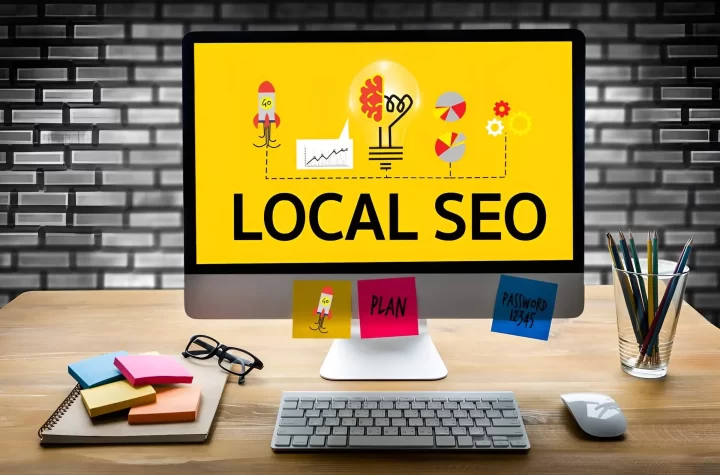
The primary objectives of eCommerce marketing are to drive traffic to your e-commerce site, convert those visitors into customers, and build your brand online. Flexibility and adaptability are key to executing this strategy. It is only then that you will achieve the best results. In contrast to traditional brick-and-mortar businesses, eCommerce marketing strategies differ greatly.
The strategies for each e-commerce company will also be different since every company has different goals. Defining your goals carefully and examining the different strategies will help you determine which strategy is the best fit for your business. It is important that the strategies you choose bring you the most dividends from your investment.
Keep in mind that whatever strategy you choose, you will need time to implement it properly, perfect it, and see results. The key to success is patience – switching strategies at a whim won’t only fail to get you results, but may damage your business as well. As a result, here are some steps you need to take before you begin developing strategies:
• Establish a clear mission and goals for your business
• Take a look at your wins and losses if you have been doing business for awhile
• Identify and prioritize areas for improvement
• Set short-term goals – for example, improving search rankings, increasing traffic, converting more website visitors into customers – whatever it is you feel may be lacking currently.
• Finally, select your strategies.
Online, you can find a variety of strategies; read them carefully before choosing the best one for you.
Search Engine Optimization (SEO)
The goal of SEO is to target search engines and users, but unlike SEM, it drives organic traffic. When users search for specific keywords on search engines, SEO optimizes your website content to appear high up on the result pages. Your business is targeted at the best targets, resulting in quality and quantity clicks.
SEO includes several techniques, such as using the right keywords at the right time and place, providing relevant, unique, and interest-generating content to users, and building high-quality backlinks (from authoritative sites). The search engine algorithms change frequently, and one must stay abreast of these changes or the site will be penalized for using ‘black hat’ methods.
Social Media Marketing
Using social networks to promote your eCommerce business is called social media marketing. Content marketing can be implemented alone or in conjunction with this strategy. With its ability to reach worldwide audiences instantly, it is a powerful tool. As long as the content is outstanding and adds value or is highly relevant or interesting, it has the potential to become viral and get shared and popularized by people.
In addition to driving high engagement, it is also capable of driving sales. Sharing, retweeting, commenting, and so forth, arouse curiosity among other users when someone likes something. Your brand will be remembered vividly as a result. A blog post that is shared to Facebook, Twitter, or a Facebook page gets even more attention when people share it.
eCommerce businesses benefit greatly from social media since they give them the opportunity to showcase their presence in a big way. Mobile devices allow users to like, share, and even buy content by swiping and tapping. Aside from promoting catalog content to users based on past browsing habits, these platforms also allow businesses to advertise their catalogs. This platform is visual-heavy, so ensure your posts include photos, infographics, animations, and videos that attract your audience.
Search Engine Marketing
SEM is the process of advertising your eCommerce website through search engines. Pay-per-click ads are available in various formats, and you can purchase them. People who are looking for similar products and services to yours can find your business through search engine marketing. The marketer sets a price when users click on the keywords that are most relevant to their business. All advertising relevant to those keywords enters an auction when users search for them.
It takes just a few seconds for the search engine to choose the winner based on quality, bid, and other factors. Traffic is not generated organically by SEM. Additionally, it provides a rapid surge in traffic and new leads for businesses. As they appear during a user’s search for a product or information, SEM ads are also non-intrusive.
Content Marketing
The goal of content marketing is to drive organic traffic to your website by creating and using content, such as blogs, videos, infographics, e-books, guides, whitepapers, etc. Your content can convert visitors into customers, increase your reach, and establish your business as one that adds value when it is compelling enough. Business-to-business and business-to-consumer brands both rely on content marketing.
Building and growing loyal audiences require creating and sharing information that is relevant, useful, engaging, and helpful. This will lead to increased customer interaction and push consumers towards your brand, which will increase traffic, generate leads, increase sales, and ultimately, increase profits for your company.
In order to choose the optimal format and platform for delivering content to your audience, you must understand their pain points. In order for your content to be effective, it must be able to address the pain points and questions of your audience in a way that is authoritative and effective. As a result, you will be seen as an authoritative and knowledgeable business that takes its customers seriously.
Email Marketing
In spite of the fact that emails are not intrusive, they are highly effective in reaching your audience directly. Your leads can be nurtured and sales can be boosted using them. Your follow-up emails serve to remind potential customers about your eCommerce site, and they demonstrate your persistence and your dedication to your business.
You can use email marketing to introduce your business or brand, to inform about product launches, to share brand news, or even to provide general information about eCommerce that your customers might find useful and interesting. Many marketing emails are marked as spam. It’s important to stand out, and to make sure that the email you send will be of value to your subscribers; you should also craft a subject line that grabs the reader’s attention.
Before you start writing your email, here’s something you need to know: you need subscribers who have voluntarily opted in to receive emails from you, believing that you will provide them with value. Your emails have a greater chance of being read and taken action if your subscribers actually go through them.
Affiliate Marketing
Through blogs, vlogs, etc., eCommerce businesses connect with marketers willing to sell their products. A YouTube baker, for instance, may mention specific brand names when giving a recipe, such as baking powder, fruit filling, etc. Their blogs or videos also include links to those products so viewers and readers can purchase them right away.
Affiliate links are sometimes included in email newsletters sent by marketers. Each time a sale is made, a commission is earned, and affiliate marketers can promote any product they wish. Businesses can benefit from it quickly and economically, while affiliate marketers can earn passive income from it.
Influencer Marketing
People who are social media celebrities are able to ‘influence’ people’s purchasing decisions via their vlogs, blogs, and social media posts. In today’s digital marketing world, they play an important role. People trust them more than celebrities like movie stars and athletes because they have a loyal following with whom they engage actively. It is important to take care when targeting the right audience using influencers since they have a reputation to protect.
Trust needs to be built with the right influencers, which results in trust with the audience. Influencers post photos and videos of the product, launch new products, endorse through written posts, or present awards for contests held by the companies they are engaged in.
Conclusions
There is no doubt that e-commerce will remain a part of our lives for a long time to come. Access to the Internet and the proliferation of mobile devices are on the rise. As a result of its ease and convenience, online shopping is becoming increasingly popular. Online business will increase as a result. In order to stand out and gain attention, you have to implement strategies that will give you an edge over your competitors.




More Stories
Mobile SEO Guide: Ways to Improve Mobile Ranking
How Digital Marketing Actually Works
Double Your Website Traffic with Our Customized Local SEO Packages in 2024